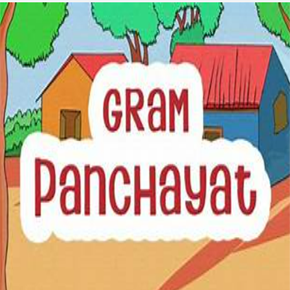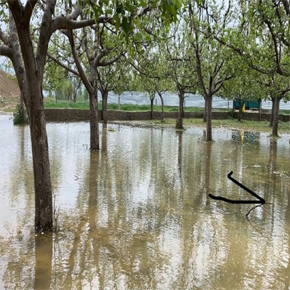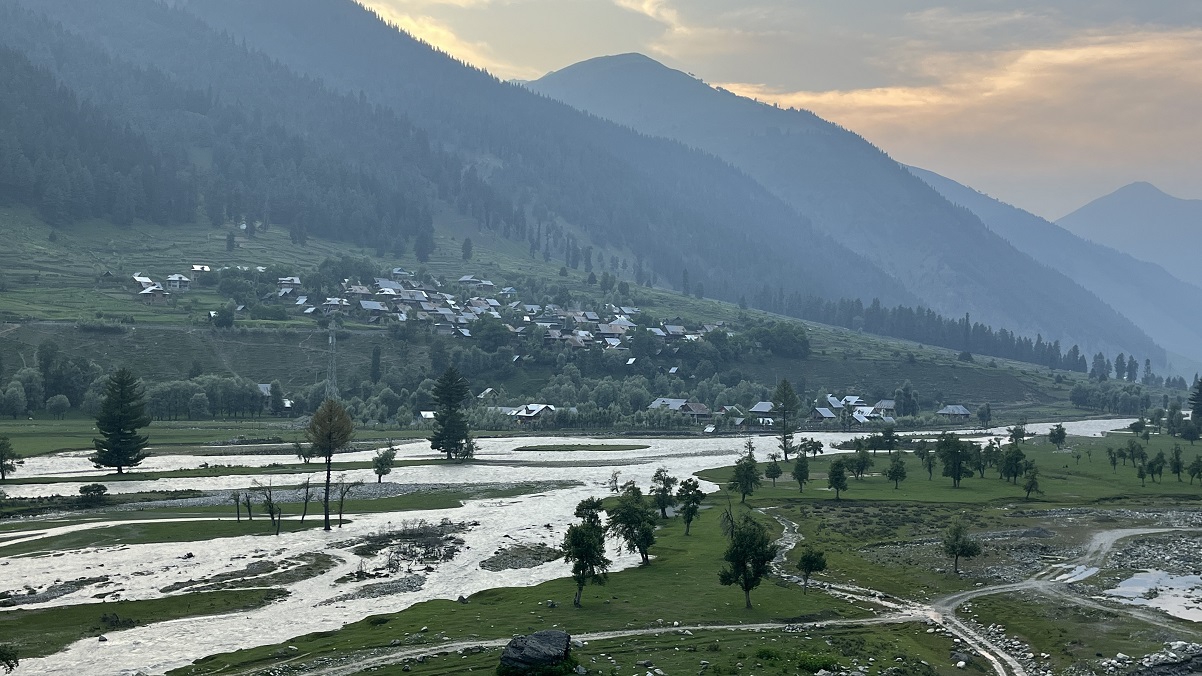The new Chief Secretary needs to prioritise Power, Sanitation, Environment; and yes, fight against Corruption.
It is always a dream for an IAS officer to become Chief Secretary in a state / UT or be posted as Secretary to Govt before retirement. Not all are lucky enough to get this opportunity. After many years a Kashmiri IAS officer has been appointed as Chief Secretary of Jammu & Kashmir. I believe after the resignation of Late Iqbal Khanday as Chief Secretary in September 2015, Atal Dulloo is the first Kashmiri to be appointed as the top bureaucrat of Jammu & Kashmir.
Born in a Kashmiri Pandit family in Srinagar on October 24th 1966 Atal Dulloo received his school education from Tyndale Biscoe School Srinagar and later on he completed his B Tech from prestigious Indian Institute of Technology -IIT Delhi. In 1989 he qualified the All India Civil Services exam in first attempt and was allocated Indian Administrative Service -IAS J&K cadre. Duloo served as Sub Divisional Magistrate in Ladakh soon after completing his probation. He was also appointed as SDM Reasi in 1992-1993. This was the time when Reasi was part of Udhampur district. In 1993 Atal Dulloo was appointed as Deputy Secretary in the Health Department and then he was posted in Raj Bhavan as well between 1993-1995. On November 28th 1995 he was posted as Deputy Commissioner Rajouri and 28 years later i.e ., November 29th 2023 Mr Dulloo was appointed as Chief Secretary of Jammu & Kashmir.
After Rajouri, Atal Dulloo was posted as DC Baramulla (1997-1999) and later on served as DC Udhampur 2002-2003). After 2003 he was posted as Secretary to Govt in various departments and was promoted as Commissioner Secretary, Principal Secretary and Financial Commissioner as well. During COVID 19 pandemic he was posted as Financial Commissioner Health and Medical Education (2019-2021). He was posted as Financial Commissioner Finance in 2021-2022 and in 2022-23 he was posted as Financial Commissioner Agriculture Production. In July 2023 he was sent on central deputation and posted as Secretary to Govt of India Border Management under the Ministry of Home Affairs.
Awards and achievements
In 2009 Atal Dulloo underwent special training on healthcare policy and programme management at Korea Institute of Health and Social Affairs. In 2014 he went to the USA to attend executive training on ethics and governance at University of California, Berkeley. In 1996 he was awarded a state award for successfully conducting a state assembly election as District Election Officer / DC Rajouri. In 2013 he received a state award for meritorious public service. Between 1998 to 2009 Atal Dulloo has attended several training sessions on infrastructural development, institutional financing , negotiating strategies in public private partnership and e-governance.
Challenges before him
Power Crisis
Mr Atal Dulloo has taken over as Chief Secretary of J&K at a time when Jammu & Kashmir especially Kashmir is facing a major electricity crisis. This is a major challenge before him now. In fact J&K Administrative Council (AC) which met a few days back under the chairmanship of the Lieutenant Governor, Manoj Sinha, gave approval for purchase of additional energy of 500 MW of power from the Ministry of Power (MOP)to meet Base Load power requirement.
Srinagar’s choked landfill site
More than 6 years back, the National Green Tribunal (NGT) passed an order directing the Chief Secretary of Jammu & Kashmir to ensure compliance to the cabinet order dated October 23rd 2017, on setting up of the waste to energy plant. The NGT which had been hearing the petition on Achan landfill site from 2013 onwards in the matter of Dr Irfan Ahmad and others v/s Nawang Rigzin Jora the then J&K Housing and Urban Development Minister in its order had said,
“We make it clear that we will not grant any further time on any ground whatsoever as it merely an administrative compliance now”
It is now 6 years plus, yet the order of the NGT and J&K cabinet has not been implemented. The NGT came to the conclusion of directing the J & K Government to set up waste to energy plant after several rounds of deliberations and discussions. NGT had constituted some expert committees for providing a solution to Srinagar’s solid waste problem. If the government, like several waste management experts, had disagreements with the waste to energy projects, why did the J&K cabinet give a nod to the NGT’s direction? People in the entire Srinagar old city are suffering as the bad smell from Achan landfill continues to impact the entire population. This landfill site is completely choked and the Chief Secretary needs to intervene. The terrible pungent smell has caused havoc in SKIMS hospital and patients along with their attendants face lots of difficulties. Even the liquid waste is polluting our drinking water sources like Jhelum, Dal, Doodh Ganga which needs immediate solutions.
Corruption in J&K
Corruption continues to haunt people in J&K. In fact J&K Anti Corruption Bureau-ACB is doing a great work but due to the absence of separate special anti-corruption judges, the corruption cases filed by ACB in these courts take years to get judgments. Very less convictions are made and accused officers arrested red handed get acquitted as well. As per the data provided by J&K ACB under RTI Act 2005 to this author, there were only 78 Govt officials convicted in the last 13 years i.e between 2010 to 2023 in J&K. During the same time 156 Govt officials who were accused of corruption by ACB were acquitted by the respective Anti Corruption courts. This means the graph of acquittal is three times more than conviction ? In Special Anti Corruption Court Jammu, 75 accused Govt officials were acquitted and 55 were convicted; in Special Anti Corruption Court Srinagar which includes cases from Budgam and Ganderbal as well, 42 Govt officials were acquitted and only 18 were convicted between 2010-2023.
Rural Waste Management programme
Under the national flagship programme, Swachh Bharat Mission Gramin (SBM-G) phase 2 solid liquid waste management programme was launched in J&K around a few years back. The SBM Gramin operational guidelines are not followed and Contractors, Panchayat Members are executing the works on their own and this has led to chaos and confusion. The waste segregation sheds have been constructed either near water bodies (streams or canals) or are located on roadsides. The trash bins procured for crores of rupees are choked with trash for the last 6 months or year and nobody is clearing them ? Waste continues to be dumped in village ponds , rivers , streams or open plots and things are very bad. There are not even two dozen panchayats wherein we can showcase some success stories on rural waste management ?
Illegal Riverbed Mining , Wetlands
Jammu & Kashmir is beautiful because of its rivers and streams. In Kashmir valley these streams mainly arise in the mountains of the Pir Panjal and flow into the Jhelum river. Most of these tributaries are less than 50 meters wide. But their waters are used for drinking and to irrigate paddy fields and apple orchards. In the last 20 years, the combination of massive urbanisation and a population explosion has put pressure on the Jhelum and its tributaries, many of which are being mined for construction material like sand, gravel and boulders regardless of environmental concerns.
While riverbed mining has always been conducted in this area, it was carried out manually by local workers, so the environmental impact was low. However, in the last few years, contractors have been bringing in heavy machines for riverbed mining, which is degrading and destroying these rivers. This is unlawful as per J&K ‘s Minor Mineral Concession Rules 2016 and this author had to move to National Green Tribunal -NGT to stop illegal riverbed mining in Doodh Ganga, Shali Ganga and Romshi Nallah. In addition to it, Karewas which are our archaeological treasures are also looted and plundered. This is defacing the landscape of our Kashmir valley and parts of Jammu region as well. Our wetlands are also encroached and choked with trash and this also needs immediate attention and orders and directions from Apex Court , NGT need to be respected.
Conclusion
Ethical leadership means both acting ethically and setting the standard for others to do so as well. As Chief Secretary Mr Atal Dulloo has a great opportunity to inspire his Govt officials not only to do the right thing or follow the rule of law but he can act as an agent of change by ensuring good governance for which people are craving for decades. Lot of good work has been done by his predecessor Dr AK Mehta especially on e- governance . Mr Dulloo can not only augment that but I am sure he will make sure people get better electricity supply, better sanitation and roads which are basic things citizens should be provided by a welfare state.

























































































